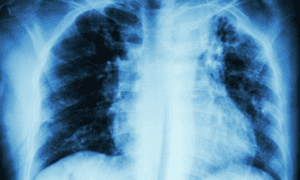Understanding Chronic Respiratory Diseases
Chronic respiratory diseases are a group of long-term pulmonary conditions that significantly impact patients’ health and well-being. Among the most common types are asthma, Chronic Obstructive Pulmonary Disease (COPD), and interstitial lung diseases. These conditions often require ongoing management and can lead to various complications, including respiratory failure and severe physical limitations.
Asthma is characterized by inflammation of the airways, causing episodes of wheezing, breathlessness, chest tightness, and coughing. It is prevalent across all age groups and affects millions worldwide. COPD, primarily caused by smoking, encompasses emphysema and chronic bronchitis, leading to breathing difficulties and, ultimately, reduced lung function. Interstitial lung diseases, a diverse group of disorders, affect the lung’s interstitium, the tissue around air sacs, often resulting in progressive scarring and impaired gas exchange.
The prevalence of chronic respiratory diseases has been steadily increasing, largely due to environmental factors, smoking, and aging populations. According to the World Health Organization, these diseases collectively represent a significant burden on public health systems globally. Patients often experience not only physical limitations but also a range of psychological challenges. Living with such chronic conditions can lead to heightened levels of anxiety and depression, significantly diminishing patients’ quality of life.
The interplay between physical ailments and psychological distress is considerable. The constant struggle to breathe can result in feelings of helplessness and frustration, making it crucial for healthcare providers to address both physical and mental health aspects in treatment plans. Understanding chronic respiratory diseases, their prevalence, and their impact on psychological wellness is essential for developing comprehensive care strategies that enhance patient well-being.
The Role of Psychological Interventions
Chronic respiratory diseases, such as asthma and chronic obstructive pulmonary disease (COPD), significantly affect individuals’ physical health and overall quality of life. Psychological interventions emerge as a critical component in managing these conditions, addressing the emotional and mental aspects that often accompany chronic illness. Various therapeutic approaches, including Cognitive Behavioral Therapy (CBT), mindfulness practices, and stress management techniques, play a vital role in helping patients navigate their respiratory challenges.
Cognitive Behavioral Therapy has been recognized for its effectiveness in altering negative thought patterns and behaviors associated with chronic illness. For patients dealing with chronic respiratory diseases, CBT can help to reshape their perceptions of illness-related stress, alleviate anxiety around breathing difficulties, and bolster adherence to treatment plans. This approach empowers individuals by equipping them with strategies to manage their thoughts, thereby fostering a sense of control over their health and well-being.
Mindfulness practices, which involve focusing on the present moment without judgment, can also offer substantial benefits for patients. These techniques encourage relaxation and can reduce the impact of stress on respiratory function. By incorporating mindfulness into their daily routines, patients can learn to manage anxiety and improve their emotional states, ultimately leading to enhanced coping abilities in the face of their chronic condition.
Furthermore, stress management techniques, such as relaxation exercises and guided imagery, are invaluable for patients with chronic respiratory illnesses. Reducing stress can minimize respiratory symptoms and enhance overall patient well-being. Through tailored psychological interventions, patients can cultivate resilience, foster positive emotional states, and improve their adherence to necessary treatments. Therefore, integrating psychological interventions into the care models for chronic respiratory diseases is not only beneficial for mental health but is an essential strategy to enhance overall patient outcomes.
Evidence-Based Approaches and Best Practices
Recent research has underscored the importance of integrating psychological interventions in the management of chronic respiratory diseases. Various studies have demonstrated that patients experiencing respiratory conditions such as asthma, chronic obstructive pulmonary disease (COPD), and interstitial lung disease exhibit significant improvements in quality of life and overall health outcomes when provided with tailored psychological support alongside traditional medical treatments. This highlights the necessity of an interdisciplinary approach to patient care that addresses both the physical and mental health needs of individuals suffering from these conditions.
One prominent study conducted by Janson et al. provided compelling evidence regarding the efficacy of cognitive-behavioral therapy (CBT) for patients with asthma-related anxiety. The randomized controlled trial concluded that participants receiving CBT not only experienced decreased anxiety levels but also reported fewer asthma symptoms and enhanced lung function. Methodologies such as structured interviews and validated questionnaires were employed, ensuring robust data collection and analysis. These findings align with earlier research indicating that psychological distress can exacerbate respiratory symptoms, creating a cyclical pattern that complicates treatment.
Best practices for implementing psychological interventions include the customization of therapeutic approaches based on individual patient profiles. Factors such as age, comorbidities, and cultural background should influence the chosen psychological methodologies. For instance, mindfulness-based stress reduction has shown promising outcomes in older adults with COPD, while younger patients may respond better to interactive digital platforms that facilitate behavior modification. Moreover, continuous evaluation of psychological care effects through follow-up assessments is crucial to ensure that interventions remain effective over time.
In this context, the integration of mental health care into chronic respiratory disease management is essential. It not only enhances patient well-being but also leads to better adherence to medical treatments and improved health outcomes.
Integrating Psychological Care into Respiratory Treatment
The integration of psychological care into the routine treatment of chronic respiratory diseases is essential for a holistic approach to patient well-being. Healthcare providers must recognize that mental health significantly influences the physical health of patients suffering from conditions such as asthma, chronic obstructive pulmonary disease (COPD), and other respiratory disorders. A multidisciplinary team that includes respiratory specialists, psychologists, and social workers can collaboratively address the complex needs of these patients.
One of the first steps in this integration is the routine screening for mental health conditions among patients with chronic respiratory diseases. Many individuals face anxiety, depression, and other psychological issues due to their medical condition, which can exacerbate respiratory symptoms and hinder treatment adherence. By implementing standardized screening tools within pulmonary rehabilitation programs, healthcare providers can identify at-risk patients early and deliver timely psychological interventions.
Effective communication between respiratory specialists and mental health professionals is critical to ensure a seamless integration of care. Regular interdisciplinary meetings can facilitate the sharing of insights and treatment plans, allowing for comprehensive management of both physical and mental health issues. Additionally, educating respiratory healthcare providers about the psychological aspects of chronic respiratory diseases will enable them to recognize when to refer patients to mental health services.
As research continues to highlight the profound impact of psychological factors on respiratory disease management, it is imperative to explore further strategies that support the integration of psychological care. Future research could assess the efficacy of psychological interventions, such as cognitive-behavioral therapy and mindfulness training, in improving clinical outcomes for chronic respiratory disease patients. Such advancements have the potential to redefine standard care practices and enhance the overall quality of life for these individuals.






